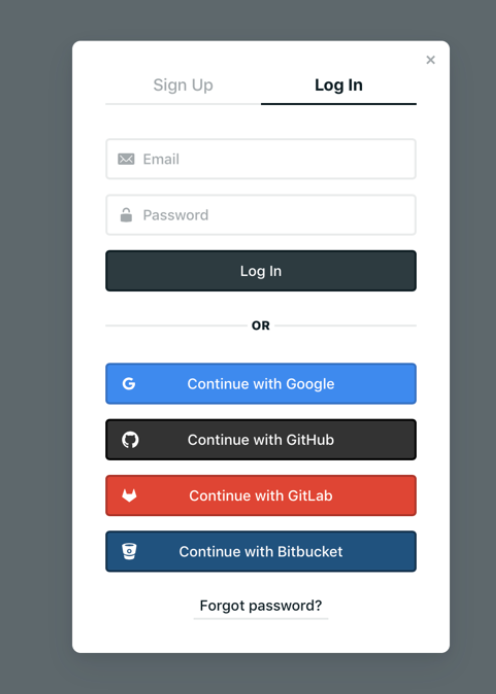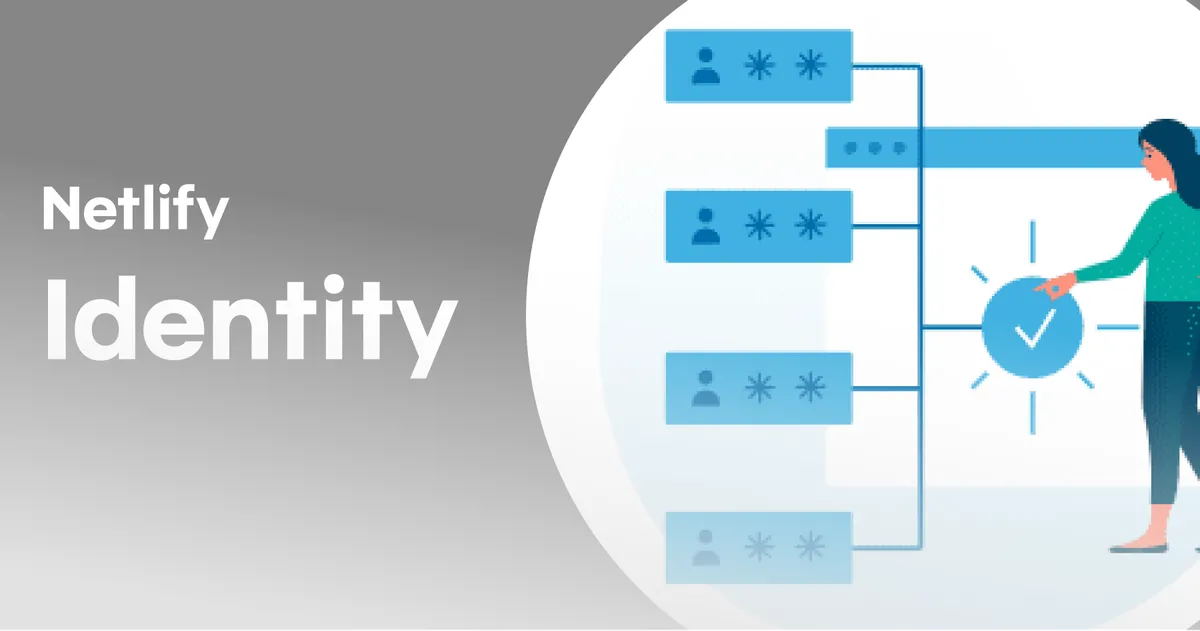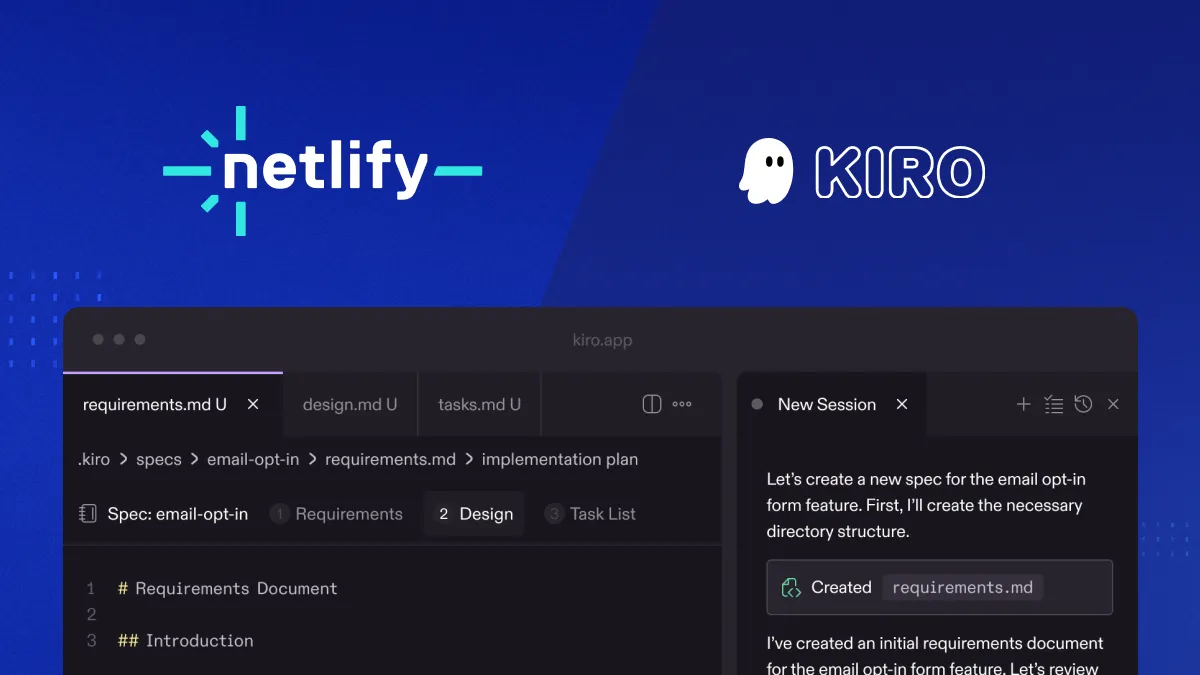Netlify Identity is deprecated. For new projects, we recommend using the Auth0 extension.
“Authenticating users is a no-brainer”, said no one ever. Managing user data, creating a login process, setting roles, gating content, these things are hard. One of my favorite strategies in web app development is getting a leg up by having someone else do the hard part. After all, you can’t spell ‘delegation’ without ‘leg’.
Netlify Identity lets us delegate a ton of authentication functionality:
- the setup and infrastructure of storing user information, as well
- login using external OAuth providers like GitHub, Google, GitLab, and Bitbucket
- trigger serverless functions on validation, signup, or login events
- generate custom emails
- access and edit user information and roles
- and more!

Leveraging the open-source GoTrue API, Netlify Identity can be added to your site with the Netlify Identity widget by adding this <script> tag:
<head><script type="text/javascript" src="https://identity.netlify.com/v1/netlify-identity-widget.js"></script></head>then including the widget in the site template, like so:
<!-- Add a menu: Log in / Sign up - when the user is not logged in Username / Log out - when the user is logged in --> <div data-netlify-identity-menu></div>
<!-- Add a simpler button: Simple button that will open the modal. --> <div data-netlify-identity-button>Login with Netlify Identity</div>Put it all together and you get this lovely pop-up modal window where users can login or sign up!

Check out the Netlify Identity docs to learn more about everything you can do. I can’t wait to see (or not see if I’m not logged in) all the authentication functionality you create! Happy coding 👩🏻💻!






